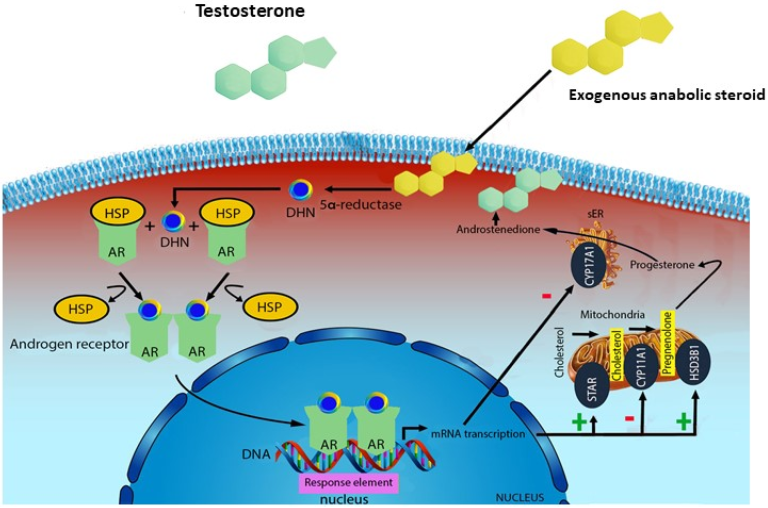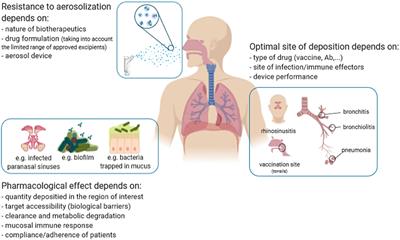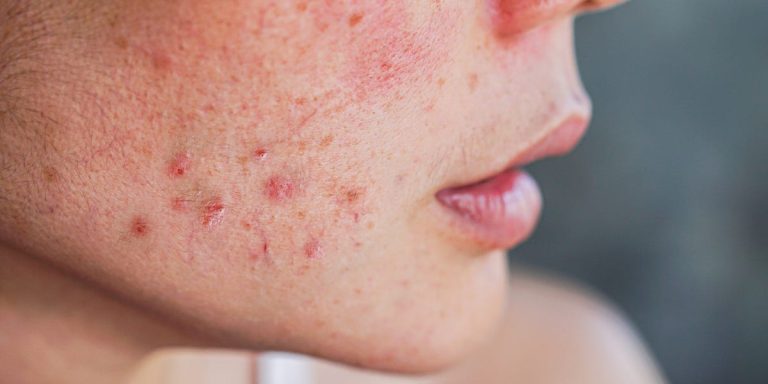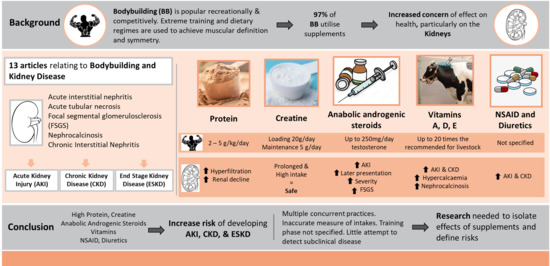Steroids And Reproductive Health: Considerations And Consequences
Welcome to the world of steroids and reproductive health. With the increasing popularity of steroids in the fitness industry, it’s…
Welcome to the world of steroids and reproductive health. With the increasing popularity of steroids in the fitness industry, it’s important to understand the impact they can have on your reproductive health. Steroids are known to have both considerations and consequences when it comes to fertility and sexual health.
Steroid use has been linked to a range of reproductive problems, including reduced sperm count, erectile dysfunction, and testicular atrophy. But what exactly are steroids, and how do they affect reproductive health? Join us as we explore the science behind steroids and their impact on reproductive health, and learn how to make informed decisions about your own health and well-being.
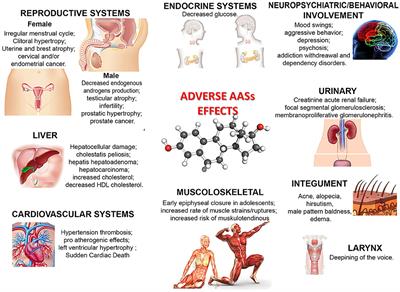
Steroids and Reproductive Health: Considerations and Consequences
Steroids are synthetic hormones that are commonly used by athletes and bodybuilders to enhance their performance and build muscle. While they may have some short-term benefits, the long-term consequences of steroid use can be devastating, particularly to reproductive health. In this article, we will explore the considerations and consequences of steroid use on reproductive health.
What are steroids?
Steroids are synthetic hormones that are similar to the male hormone testosterone. They can be taken orally, injected, or applied as a cream or gel. Steroids are commonly used by athletes and bodybuilders to enhance their performance and build muscle. They are also used to treat certain medical conditions such as delayed puberty, muscle wasting, and osteoporosis.
Benefits of steroids
Steroids have some short-term benefits, such as increased muscle mass, strength, and endurance. They can also improve recovery time after intense workouts and reduce inflammation. In addition, steroids can be used to treat certain medical conditions such as delayed puberty, muscle wasting, and osteoporosis.
Side effects of steroids
However, steroids also have many side effects, particularly when used in high doses or for long periods of time. These side effects can include acne, hair loss, mood swings, aggression, and high blood pressure. In addition, steroids can have devastating effects on reproductive health.
Steroids and Male Reproductive Health
Steroids can have serious consequences on male reproductive health. They can cause testicular shrinkage, reduced sperm count, infertility, and impotence. Steroids can also increase the risk of prostate cancer and other prostate issues.
Testicular shrinkage
Steroids can cause the testicles to shrink, which can lead to reduced testosterone production. This can result in decreased libido, impotence, and infertility.
Reduced sperm count
Steroids can reduce the number of sperm produced by the testes. This can lead to infertility and difficulty in conceiving.
Infertility
Steroids can cause permanent damage to the testes, which can result in infertility.
Impotence
Steroids can also cause erectile dysfunction, which can lead to impotence.
Steroids and Female Reproductive Health
Steroids can also have serious consequences on female reproductive health. They can cause menstrual irregularities, infertility, and masculinization.
Menstrual irregularities
Steroids can disrupt the menstrual cycle, which can lead to irregular periods or even stop menstruation altogether.
Infertility
Steroids can also cause permanent damage to the ovaries, which can result in infertility.
Masculinization
Steroids can cause the development of male characteristics in females, such as facial hair, deepening of the voice, and enlargement of the clitoris.
Steroids and Pregnancy
Steroid use during pregnancy can have serious consequences for the fetus. It can cause premature birth, low birth weight, and even fetal death. In addition, steroids can cause developmental abnormalities in the fetus.
Conclusion
In conclusion, while steroids may have some short-term benefits, the long-term consequences of steroid use can be devastating, particularly to reproductive health. Steroids can cause testicular shrinkage, reduced sperm count, infertility, impotence, menstrual irregularities, and masculinization. In addition, steroid use during pregnancy can have serious consequences for the fetus. Therefore, it is important to consider the potential consequences before using steroids and to seek medical advice before beginning any steroid regimen.
Frequently Asked Questions
How do steroids affect male reproductive health?
Steroid use can have numerous negative effects on male reproductive health. First and foremost, steroid use can lead to a decrease in the production of testosterone, which can result in decreased sperm count and fertility. Additionally, steroids can cause testicular atrophy, which can further impact fertility. Long-term steroid use has also been linked to an increased risk of prostate cancer.
In addition to impacting fertility, steroid use can also cause other negative effects on male reproductive health. Steroid use can lead to erectile dysfunction, decreased libido, and gynecomastia (the development of breast tissue in men). These effects can be irreversible in some cases, even after stopping steroid use.
What impact do steroids have on female reproductive health?
Steroids can have both short-term and long-term negative effects on female reproductive health. Short-term effects can include irregular menstrual cycles and changes in libido. Long-term effects can include infertility, masculinization (developing male characteristics such as a deeper voice and increased body hair), and an increased risk of breast cancer.
Steroid use during pregnancy can also have negative consequences, including an increased risk of miscarriage, premature delivery, and stillbirth. Additionally, steroids can be passed to a developing fetus, potentially causing developmental issues.
Can steroid use impact sexual function in both men and women?
Yes, steroid use can have a significant impact on sexual function in both men and women. In men, steroid use can lead to erectile dysfunction, decreased libido, and difficulty achieving orgasm. In women, steroid use can cause changes in menstrual cycles, decreased libido, and masculinization. These effects can be both short-term and long-term, and can be irreversible in some cases.
Are there any safe ways to use steroids for athletic performance?
No, there are no safe ways to use steroids for athletic performance. Steroid use is illegal in most countries and can lead to numerous negative health consequences. Additionally, the use of steroids in sports is considered cheating and can result in disqualification and other penalties.
There are legal supplements and alternative methods for improving athletic performance, such as proper nutrition, exercise, and rest. These methods do not carry the same risks as steroid use and can result in long-term, sustainable improvements in athletic performance.
What should I do if I am experiencing negative side effects from steroid use?
If you are experiencing negative side effects from steroid use, it is important to seek medical attention immediately. Some side effects can be irreversible, so early intervention is critical. Your doctor can help you manage any physical or psychological side effects and may recommend a treatment plan to help mitigate the negative effects of steroid use. Additionally, it is important to stop using steroids and to seek support from a healthcare provider or mental health professional as needed.
How do steroids affect your muscles— and the rest of your body? – Anees Bahji
In conclusion, the use of steroids can have serious consequences on reproductive health. It is essential to consider the possible impacts of steroid use before engaging in such activities. Steroids can cause hormonal imbalances that can lead to decreased fertility, impotence, and other health issues.
It is important to note that there are safer alternatives to steroids that can be used to achieve similar results. Those who engage in steroid use should consult with a medical professional and take necessary precautions to minimize any potential harm.
Ultimately, the decision to use steroids is a personal one, but it is crucial to be aware of the potential consequences and take steps to protect one’s reproductive health. By doing so, individuals can ensure that they are making informed choices that prioritize their overall well-being.

